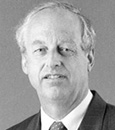
Rüdiger Wolfram
13. Januar 2005
Mit freundlicher Unterstützung der Manfred Lautenschläger Stiftung
Prof. Dr. h. c. Rüdiger Wolfram
Max-Planck-Institut für ausländisches öffentliches Recht und Völkerrecht, Heidelberg
Der ungeborene, der alte und der kranke Mensch: Fragen zur Menschenwürde
The need to protect human dignity is often used as an argument in the discussion on the treatment of unborn life, the moribund and the dead. The protection of human dignity is one of the principal aims of our constitution, prescribed in Art. 1 para. 1. In the scientific legal discourse, the definition of human dignity is predominantly based on a kantian concept. Dignity is defined as intrinsic worth, which is attributed to every human because of his autonomy.
In the political discussion however, dignity is often not used to protect human autonomy. In the contrary, many restrictions and regulations are justified in the name of human dignity. This becomes particularly obvious in the discussion on the prohibition of human cloning or on medically assisted suicide. Unworthy treatment can also be observed in other fields, such as the contact with morbid and moribund persons.
These examples show that the notion of dignity today has an ambiguous character. One should therefore recall the philosophical origins of dignity and bear in mind, that restrictive regulations are one of the principal obstacles for a 'life' in dignity.